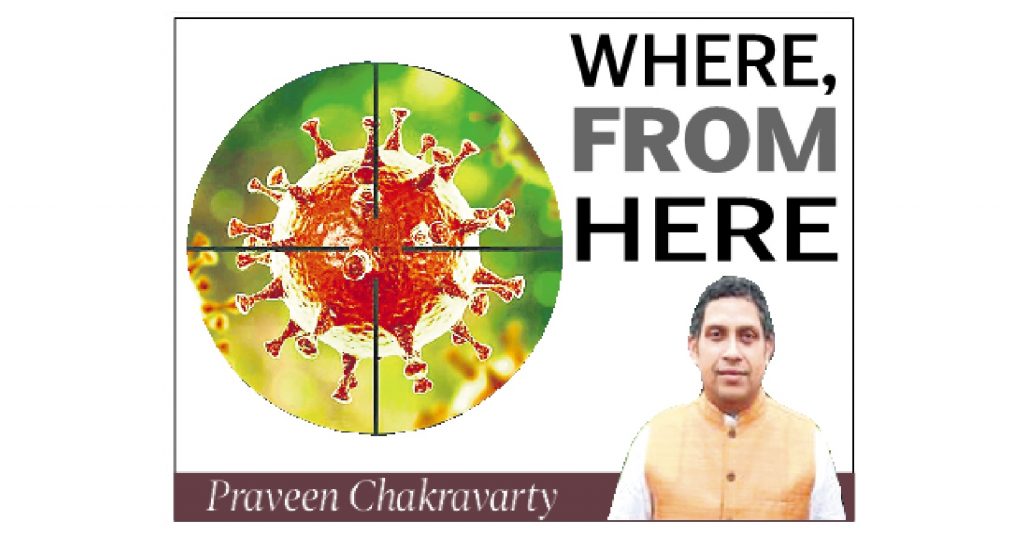In this continuing series, prominent individuals look at the future, after the lockdown and after Covid-19.
–EDITOR
When I was invited to write about life in a post-Covid era by Editor of OrissaPOST, I was bemused because it would be an impossible exercise yet i took the challenge. I will not pretend to know-it-all and predict the future, but will raise some pertinent questions that can help picture a post-Covid world for yourself.
Let us suppose that the lockdown is lifted on May 17. The next day, how will your life change? Will you go to work or stay back at home? Will you wear a mask and breathe your own air? Will you greet your co-workers with a hug/handshake or stay far away and do a namaste? Will you use the common bathroom? Will you lunch with colleagues or do it alone? Will you go to the market to shop or not take the risk of being in a crowd?
I am not being facetious with these questions. These are the sort of decisions that we will have to make in the early post-Covid days. How we respond to each of these will shape the post-Covid era and our lives for the future.
Society is organised around interactions among humans. There is tremendous fear among people today of being infected with the coronavirus by another person in their social circle. Covid19 has induced fear and distrust among humans. Fear of coronavirus is actually the fear towards our fellow humans. This can alter the very paradigm of how a society functions and manifests itself in ways that one cannot imagine now.
In the post-Covid era, will there be a reversal of people flocking to crowded urban cities for jobs or staying back in their villages to tend to farms or engage in local activities? Will this represent a transition to the old Gandhian philosophy of self-sufficient villages from the pre-Covid trend of rampant urbanisation?
In the pre-Covid era, Ola and Uber were fast replacing individual cars. Oyo and Air BnB replaced hotel rooms. Will we continue to sit in Ola taxis that some other stranger sat in? Or use a shared Oyo room? Will we ride public transport or revert to individual mode of transport? Will there be a shift to individualism in our economy from the shared economy model in the pre-Covid era? If so, will technology such as mobile phones and computers play a much greater role in our lives since it fosters individualism?
Any activity that involved large gatherings of people in the pre-Covid era will now be under scrutiny. Will we continue to have mega events, political rallies, social gatherings etc in the post-Covid era? If not, what form and shape will these activities morph into? Will watching movies, studying maths and worshipping God happen on a phone in the post-Covid era? Sounds eery to imagine.
Or are we over-thinking this? Will the rational human race adjust with a cautious lifestyle until a vaccine for the disease arrives, after which life will return to the pre-Covid normal? At this point, we can only ponder and think aloud. It will be as unpredictable as Ashoka’s embrace of pacifism after the brutal Kalinga war.
The writer is a senior office-bearer of the Congress party and a political economist.
